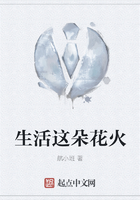No stain of treachery, of ingratitude, or of cruelty rests on his memory. Factious hatred, while flinging on his name every other foul aspersion, was compelled to own that he was not a man of blood. This would scarcely seem a high eulogium on a statesman of our times. It was then a rare and honourable distinction. The contests of parties in England had long been carried on with a ferocity unworthy of a civilised people. Sir Robert Walpole was the minister who gave to our Government that character of lenity which it has since generally preserved. It was perfectly known to him that many of his opponents had dealings with the Pretender.
The lives of some were at his mercy. He wanted neither Whig nor Tory precedents for using his advantage unsparingly. But with a clemency to which posterity has never done justice, he suffered himself to he thwarted, vilified, and at last overthrown, by a party which included many men whose necks were in his power.
That he practised corruption on a large scale, is, we think, indisputable. But whether he deserves all the invectives which have been uttered against him on that account may be questioned.
No man ought to be severely censured for not being beyond his age in virtue. To buy the votes of constituents is as immoral as to buy the votes of representatives. The candidate who gives five guineas to the freeman is as culpable as the man who gives three hundred guineas to the member. Yet we know that, in our own time, no man is thought wicked or dishonourable, no man is cut, no man is black-balled, because, under the old system of election, he was returned in the only way in which he could be returned, for East Redford, for Liverpool, or for Stafford.
Walpole governed by corruption, because, in his time, it was impossible to govern otherwise. Corruption was unnecessary to the Tudors, for their Parliaments were feeble. The publicity which has of late years been given to parliamentary proceedings has raised the standard of morality among public men. The power of public opinion is so great that, even before the reform of the representation, a faint suspicion that a minister had given pecuniary gratifications to Members of Parliament in return for their votes would have been enough to ruin him. But, during the century which followed the Restoration, the House of Commons was in that situation in which assemblies must be managed by corruption, or cannot be managed at all. It was not held in awe, as in the sixteenth century, by the throne. It was not held in awe as in the nineteenth century, by the opinion of the people.
Its constitution was oligarchical. Its deliberations were secret.
Its power in the State was immense. The Government had every conceivable motive to offer bribes. Many of the members, if they were not men of strict honour and probity, had no conceivable motive to refuse what the Government offered. In the reign of Charles the Second, accordingly, the practice of buying votes in the House of Commons was commenced by the daring Clifford, and carried to a great extent by the crafty and shameless Danby. The Revolution, great and manifold as were the blessings of which it was directly or remotely the cause, at first aggravated this evil. The importance of the House of Commons was now greater than ever. The prerogatives of the Crown were more strictly limited than ever; and those associations in which, more than in its legal prerogatives, its power had consisted, were completely broken. No prince was ever in so helpless and distressing a situation as William the Third. The party which defended his title was, on general grounds, disposed to curtail his prerogative. The party which was, on general grounds, friendly to prerogative, was adverse to his title. There was no quarter in which both his office and his person could find favour. But while the influence of the House of Commons in the Government was becoming paramount, the influence of the people over the House of Commons was declining. It mattered little in the time of Charles the First whether that House were or were not chosen by the people; it was certain to act for the people, because it would have been at the mercy of the Court but for the support of the people. Now that the Court was at the mercy of the House of Commons, those members who were not returned by popular election had nobody to please but themselves. Even those who were returned by popular election did not live, as now, under a constant sense of responsibility. The constituents were not, as now, daily apprised of the votes and speeches of their representatives. The privileges which had in old times been indispensably necessary to the security and efficiency of Parliaments were now superfluous.
But they were still carefully maintained, by honest legislators from superstitious veneration, by dishonest legislators for their own selfish ends. They had been an useful defence to the Commons during a long and doubtful conflict with powerful sovereigns.
They were now no longer necessary for that purpose; and they became a defence to the members against their constituents. That secrecy which had been absolutely necessary in times when the Privy Council was in the habit of sending the leaders of Opposition to the Tower was preserved in times when a vote of the House of Commons was sufficient to hurl the most powerful minister from his post.
The Government could not go on unless the Parliament could be kept in order. And how was the Parliament to be kept in order?















